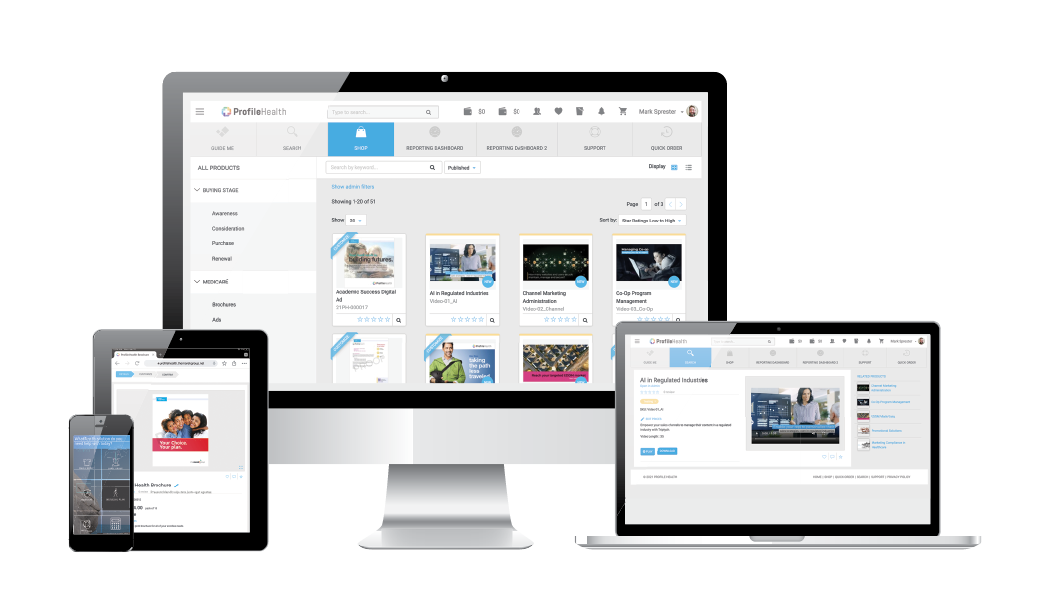4 min read
HIPAA compliant email marketing automation minimizes compliance risk
 Jason Wright
:
March 15, 2019 at 3:40 PM
Jason Wright
:
March 15, 2019 at 3:40 PM
.png)

No matter what business you’re in, you’re always looking for higher revenue and faster growth. To make that happen, you need to overcome a few hurdles. One challenge is to align your staff, strategy, and systems with these aspirations.
Is automation the silver bullet for getting a positive return on investment (ROI)?
Automation can do many things for marketers, from managing tasks to measuring outputs. Indeed, automation frees your team to be more effective. It also speeds up your organization’s growth curve.
However, healthcare still faces significant hurdles to automation. Any marketing operations must follow the Health Insurance Portability and Accountability Act (HIPAA). Its rules center on data privacy and security.
Breaches of this legislation can cost an organization millions of dollars in fines. Moreover, a lawsuit from a consumer or patient could tarnish your brand’s reputation. Health providers are obligated to take on this risk, but is the risk limited to only health providers?
Health providers, marketers, and tech companies share the risks
Hospitals, doctors, and pharmaceutical companies are not the only ones at risk. The government classifies any company that handles protected health information (PHI) as “business associates” of health providers. Business associates include sales, marketing, and tech firms that have access to PHI. Business associates are just as liable as health providers for any breaches they cause.
PHI can be as simple as an email address or as specific as a patient’s blood type or mental health records. Marketers cannot use this sensitive information without the authorization of the patient. If it ends up on an ad, it must be de-identified or anonymized. How do you keep your operations both effective and compliant?
What is marketing automation?
Automation allows marketers to scale up like never before. Based on data, today we’re able to automatically:
- Create landing pages
- Generate forms
- Create lead campaigns
- Schedule social media posts
- Prioritize leads
- Analyze data
- Perform CRM data integration
- Manage resources
- Produce reports
Automation can cover a long list of functions, and the list is only likely to grow. More than half of companies currently use marketing automation, and more than half of B2B firms plan to adopt soon. How can healthcare companies speed up this adoption rate?
One example is Delaware's largest employer, Christiana Care Health System. Web developers at Christiana rely on automation — not coding skills — to create landing pages and email campaigns. In addition, the hospital optimizes its marketing objectives by doing A/B testing of proposed content. Now, “for every $1 spent on advertising, Christiana is seeing a $30 gross margin, equating to a 3,000% ROI” from automation. Automation was an outstanding move for Christiana. Will automation be right for your organization?
A few factors can help you decide whether automation is right for your business. First, company size is relevant. Automation creates more efficiencies for larger organizations like Christiana. Other factors might include:
- How up-to-date your IT systems are
- The level of technological fluency your team possesses
- How much you could streamline your sales cycle
Automation runs off data. In healthcare, like other regulated industries, there are stringent laws on what to do with data. How do you balance the needs of effective automation against compliance requirements?
Automation versus regulation
Customer relationship management (CRM) is an indispensable tool in today’s market. However, some CRMs are better than others. Especially when it comes to handling automation in compliance-heavy industries, a little experience goes a long way.
Some CRMs are a one-size-fits-all, generic solution. As a result, they can’t respond to specific legislation. For example, HIPAA regulations take up 600 pages. A generic CRM can’t keep up with all those rules.
Despite wanting to be compliance-friendly, most martech providers opt out of upskilling. They limit themselves because they fear the laws are too complicated. To avoid breaking the law, tech providers and health providers may even stray too far in the other direction. Some have stopped emailing altogether because they mistakenly believe it's against the law.
Compliance might seem like a hassle, but it’s what consumers expect when healthcare decisions are life-and-death. How can you remain compliant and still adopt automation?
How to automate effectively
“Automation is cost cutting by tightening the corners and not cutting them.” — Haresh Sippy.
Rather than viewing data security as a burden or unnecessary cost, think of it as a way to save your business money. Enforcement and fines have increased dramatically in recent years. Even small breaches could run up millions of dollars in fines. With top-of-the-line compliance measures, you can put that money to better use in automation.
You can stay compliant and achieve greater precision and efficiency in your healthcare communications. Here are a few steps to begin your automation journey:
- Develop strong policies. Your compliance is only as good as your employee training. Note that secure email and HIPAA-compliant email are two different things. Encryption is not an automatic way to ensure PHI security. Use ‘opt-in’ boxes for your customers to tick if they agree to let their data be used for marketing material. For more information see the U.S. Department of Health & Human Services.
- Conduct a thorough risk analysis. Look into the privacy and security of information you currently have and are likely to deal with in the future. Your search could include a site survey or scanning your workplace’s physical layout. Look for vulnerabilities in and around computers, locks, windows, and access points. Then, do a full IT survey, including patches, firewalls, anti-malware, and password practices.
- Follow your policies. It’s worthless to have compliant systems if you don’t put them into practice. Create reporting points and require proof through checklists.
Automation and compliance can go hand in hand
As a marketer, you need the freedom to develop your brand through exciting content. Sometimes content involves customer stories, deep data insights, and creating controversy or hype.
These goals can be harder to reach under healthcare compliance rules, such as HIPAA. Consumers expect companies to handle their data with respect for privacy and security.
Despite these challenges, the power of automation steams ahead unabated in healthcare marketing. The key to enabling its power is gaining knowledge of HIPAA regulations and related laws.
Triptych knows what’s required to make marketing automation a successful part of a sales and marketing enterprise. We’ve worked with many healthcare companies to cut costs and scale up sales support. Contact us to find out how to boost your operations by 10x or more.

Tips to Achieve Compliance-Approved Personalized Marketing: A Triptych Perspective
In the dynamic landscape of marketing, personalized outreach stands out as a powerful strategy for engaging potential customers. However, for...






.png)